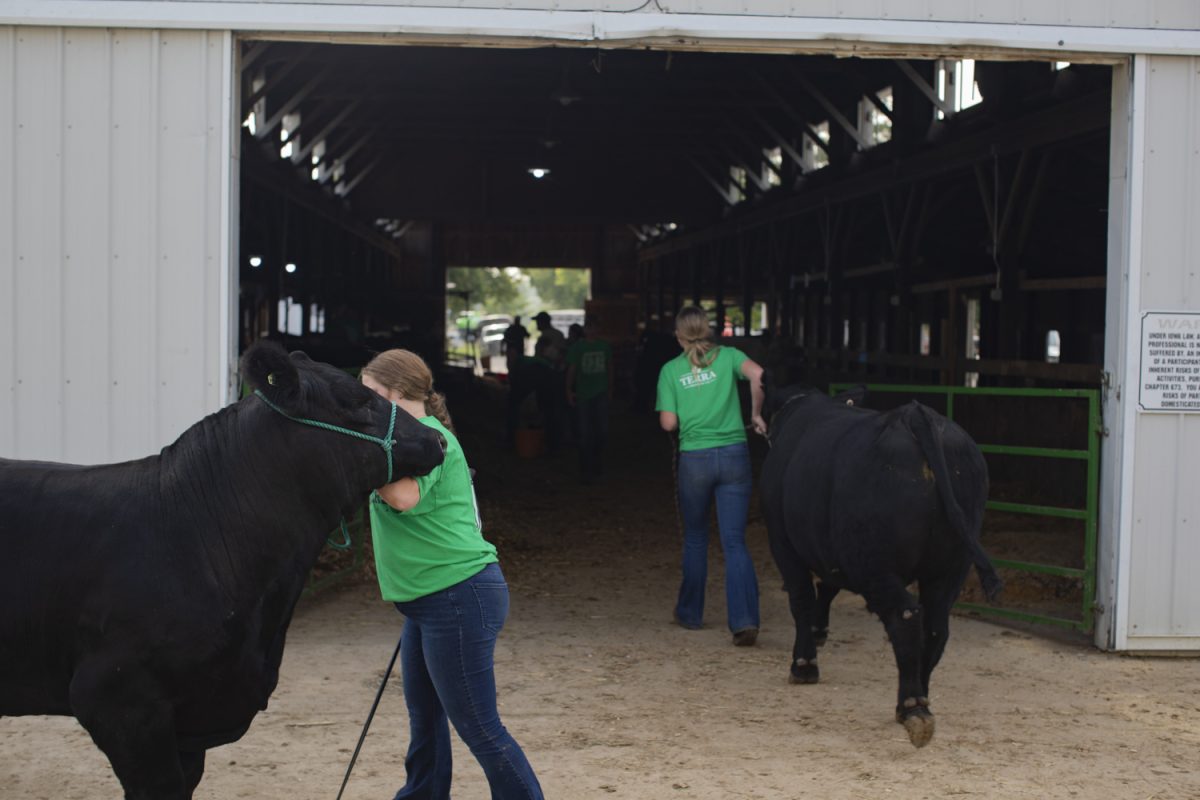Life at the UI is entirely different from that in the war zone.
And that’s why the university’s veteran-friendly programs — some of the best in the nation — are crucial for student veterans.
Members of the UI military community celebrated the university’s efforts to ensure a healthy environment for student veterans on campus Tuesday, the day before Veteran’s Day.
In August, the UI made G.I. Job’s list of military friendly schools. The list honors the top 15 percent of colleges, universities, and trade schools doing the most to embrace American vets as students.
The UI has 365 student vets, said UI Registrar Larry Lockwood. The school would like to double that number next year, he said.
To help veterans adjust to college life, university officials are setting up peer groups to counsel vets who are returning to civilian life.
“It’s tough for students who have come from a structural environment and now have total freedom,” Lockwood said, and school officials are working to inform student vets about the university’s programs. “If we start communicating with them when they first apply [for school], it will help.”
The UI is also part of the Service Persons Opportunity Network, which helps students receive credits for classes taken at other institutions.
At Tuesday’s ceremony, UI Veteran’s Association President Drew Hjelm presented Provost Wallace Loh with a “Home of the Brave Quilt” — one of many made for a nationwide project that shows support for fallen soldiers and their families. The quilt, designed by a UI staff member, will be permanently displayed in the IMU.
Rep. Dave Loebsack, D-Iowa, told those at the ceremony that honoring veterans isn’t a political statement.
“We have to treat our veterans with respect no matter what we think of the wars in Iraq and Afghanistan,” he said.
Loebsack and a handful of other speakers were followed by a screening of Lioness, a film depicting the roles women play in the military.
After the movie, female soldiers and U.S. Department of Veteran’s Affairs officials held a panel discussion on the topic.
UI senior Stephanie Linn, who served two tours in Iraq, said women are still not recognized as equals in the field, noting she had superiors order her not to go with her squad on missions that involved combat.
“I was not allowed to go out on certain operations,” she said. “I was shielded from that that type of stuff.”
Linn said it is important for soldiers to seek treatment when they return home, noting she has been seeing a counselor since she got back.
Samantha Szlembarski, an Army reservist who came home from Iraq in November 2008, said a common problem for returning vets is alcohol abuse.
“My friends have started drinking more,” she said. “They self-medicate themselves; that’s what the military teaches us.”
Linn said one problem is when veterans don’t want to seek treatment at the Veteran’s Affairs hospital, something she encourages.
“I’ve gotten treatment,” she said. “You’d be surprised how much it actually helps. My nightmares have decreased; I’m not as jumpy.”
Veteran’s Affairs psychologist Miriam Meyer said the effects of war can especially be a hindrance for student vets.
“Intrusive thoughts come way too quickly,” she said. “Some of the things they’re trying to cope with, other students don’t have to deal with.”






